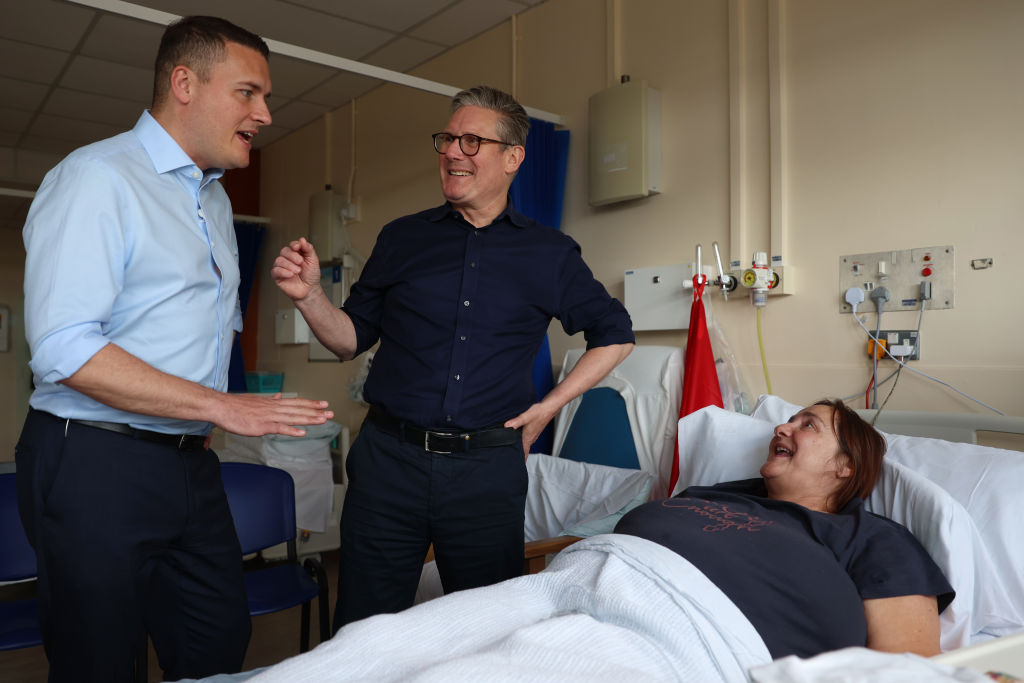The independent report published today by Lord Darzi is damning, but for those who work in the NHS it will come as no surprise. The NHS is in “critical condition”, a claim which has been frequently reiterated in some form throughout the last few years in the mainstream press. Here, the main takeaway is that productivity has not risen: despite simultaneous funding and staff increases over the last five years, waiting times have reached all-time highs.
And while Lord Darzi himself has made clear that staff are working harder than ever, there is a fear among NHS employees that they will be blamed by the Government. There has to be an acknowledgement of the on-the-ground issues causing this lack of productivity.
It is not uncommon to go on to a ward and spend 30 minutes trying to find a working computer. Once you find one, the keyboard invariably doesn’t work, or you cannot log in because of a software issue. This is a reality with which most NHS workers have to deal on a daily basis.
IT outages from cyberattacks in June served as a reminder of how vulnerable the systems upon which the NHS relies are. Such outages bring non-emergency administrative work to a standstill. Though Health Secretary Wes Streeting has today acknowledged that “the NHS is 15 years behind the private sector” on technology, Prime Minister Keir Starmer has reaffirmed the notion that no extra investment will be made without reform. It is hard to see how IT systems in the NHS can be reformed without getting the basics right first, which will require funding in the interim.
Doctors’ time is often plagued by non-clinical tasks, taking up time which could be spent seeing patients. My colleagues and I at the hospital, for example, often have to escort patients around to have scans or administer medications ourselves because porters and nurses are physically overwhelmed with the volume of tasks they have. Doctors do this because it is in the best interest of our patients, so that they are seen and managed as soon as possible.
This is not an issue of staff productivity, and an increase in the number of NHS staff to deal with these issues will not alleviate the volume of patients coming in unless there is also an increase in the physical capacity of hospitals themselves. Healthcare systems require a raise in funding each year to deal with increased complexities and health burden. What’s more, recovering from a decade of funding cuts requires adequate investment to overcome this gap.
I work in one of the largest hospitals in the country, and regularly find myself without a clinical room available to see a new patient, which increases their wait time further. The issue of productivity is directly linked to the volume of space available. Likewise, Darzi recognises that the lack of flow through hospitals is a limiting factor: once a patient has been seen in A&E, they can be left waiting days for a bed space in the hospital itself. Without funding to increase capacity, the issue of productivity will continue.
Reform is needed, and Labour’s go-to soundbite of focusing on prevention rather than cure is a step in the right direction. Perhaps it will even be the panacea that could fix the NHS. The issue lies in the fact that it will take a decade to fully reap the benefits of good public health policy — something the Conservative Party ignored for a decade, leading to the situation we find ourselves in now.
Without direct investment and strategy to deal with the issue of flow, capacity and IT systems now, productivity will not improve. Politicians and policymakers should recognise the problems on the ground in order to address this. Otherwise, Labour may well fall into the same traps its predecessors in government did.











Join the discussion
Join like minded readers that support our journalism by becoming a paid subscriber
To join the discussion in the comments, become a paid subscriber.
Join like minded readers that support our journalism, read unlimited articles and enjoy other subscriber-only benefits.
Subscribe